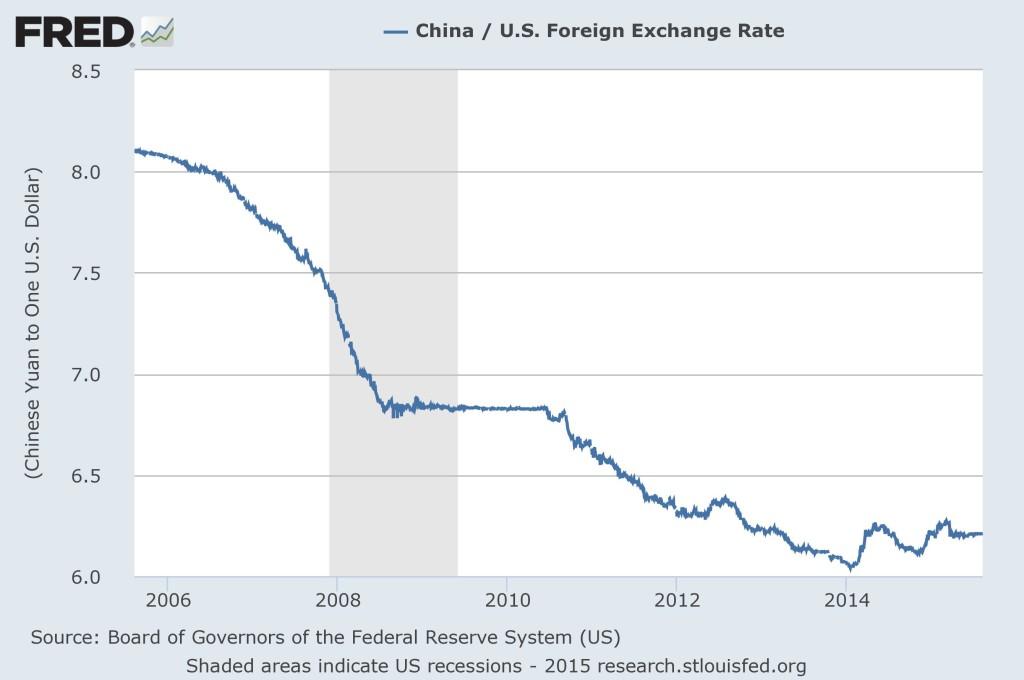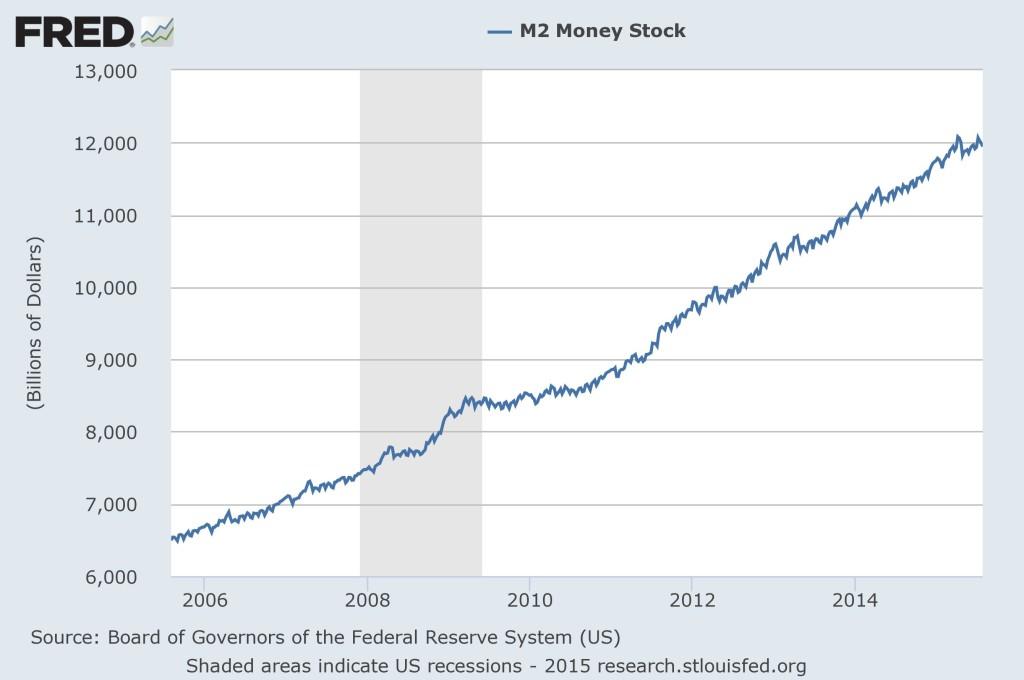China has devalued the Yuan for the third day in a row. For many, this has aroused fears of a currency war. But, as Paul-Martin Foss explains below, its a bit hypocritical of Americans or Europeans to regard the Chinese as mean and nasty and currency warriors because they’re letting their currency adjust against a constantly-devaluing dollar and euro. The US has been devaluing the dollar for years, but that’s a-ok for Wesrern commetators, apparently. Now, as Frank Hollenbeck has pointed out, devaluing the currency to favor exporters is a bad idea, but that’s nevertheless what Europe, the US, and Japan have been doing for years - unofficially. The fact that China is now trying to get in on the game is just the expected outcome of the current global monetary race to the bottom:
Why China Devalued the Yuan
By Paul-Martin Foss
Taking a look at this chart of the Dollar/Yuan exchange rate, you can understand why the Chinese government took the action that it did. The chart is denominated in yuan to dollars. The more yuan per dollar, the weaker the yuan and the stronger the dollar; the fewer yuan per dollar, the stronger the yuan and the weaker the dollar. You can see that the yuan has been continuously strengthening over the past ten years. Remember that as a currency strengthens, exports from that country become more expensive. A good that cost 100 yuan back in 2005 would mean a dollar cost of a little over $12. A 100-yuan good today would cost over $16. That’s why the Chinese government originally tried to keep the yuan pegged to the dollar, so as not to make the exports it relied upon for economic growth more expensive abroad. But after much pressure from the US and other Western countries, the government depegged the yuan, allowing it to trade in a narrow band and appreciate against the dollar.

Remember the dynamic that was going on, too. Chinese firms would export to the United States. US importers would pay Chinese firms in dollars. Those dollars would come back to China, where the exporters wanted to change them into yuan. Now what to do with all those dollars? Well, the Chinese government used them to purchase US Treasury bonds. Of course, the US wanted to take advantage of this, so the Federal Reserve created even more money out of thin air, increasing the money supply, with more and more of those dollars going overseas to purchase Chinese goods. And then the Chinese government would soak up more of the US government’s debt. Cheap goods and our debt is covered? That’s a win-win in any government’s book.
Take a look at the chart of the M2 money supply, the broadest money supply measure the Fed still publishes.

As the M2 money supply increases (devaluing the dollar), it seems that the yuan strengthens against the dollar. If you look at the actual data behind these charts, there’s a -0.91 correlation between M2 and the yuan/dollar exchange rate over the past 10 years. If you strip out the new pegging period from mid-2008 to mid-2010, there’s a -0.96 correlation from mid-2005 to mid-2008, and a -0.85 correlation from mid-2010 to today, which rises again to -0.96 if you remove the data from the interventionist period beginning in early 2014. Yes, correlation doesn’t equal causation, but these numbers aren’t mere coincidence. The US government wanted to take full advantage of the dollar’s position as the world’s reserve currency, exporting dollars to China in exchange for cheap consumer goods, while simultaneously making US exports of capital-intensive goods to China cheaper.
Any American reactions to China’s devaluation moves must be seen as hypocritical. Just as the US government took advantage of the Bretton Woods system to print more dollars than it had gold, it has engaged in a similar beggar-thy-neighbor policy with respect to China, exporting devaluing dollars to China in exchange for Chinese-made goods. It is perfectly understandable that China would rather not have its monetary policy guided by decisions made in Washington. All the hand-wringing in Washington is just for show. American politicians wanted to enjoy the benefits of inflation, getting something for nothing, and they don’t want it to stop. So they try to paint China as the bad guy for reacting to loose American monetary policy. It goes without saying that none of this would be an issue if we could just get government out of the money creation business. But that’s a story for another day.


